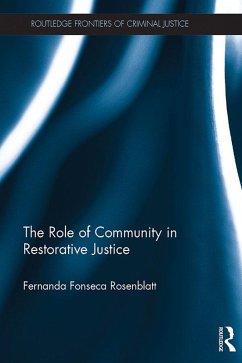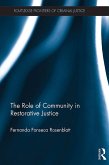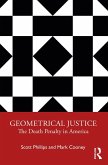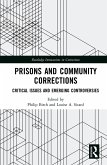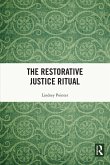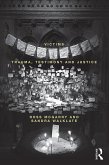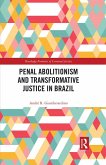This book offers an empirical and theoretical explanation of what 'community involvement' means and what work it does in restorative justice. It argues that restorative justice programmes need to start from a more concrete and up-to-date notion of community.
Dieser Download kann aus rechtlichen Gründen nur mit Rechnungsadresse in A, B, BG, CY, CZ, D, DK, EW, E, FIN, F, GR, HR, H, IRL, I, LT, L, LR, M, NL, PL, P, R, S, SLO, SK ausgeliefert werden.
'Focusing on Great Britain, Rosenblatt offers the first empirical results on this subject, making it a must-read for anybody who is interested in the relationship between Restorative Justice and Communities. It should be on the bookshelf of any serious scholar in this area. The future lies in works like this.' - Elmar G.M. Weitekamp, Ph.D. University of Tübingen, Germany
'In The Role of Community in Restorative Justice, Rosenblatt confronts the mythology of government programs that claim to be "restorative" by exploring the concept of community more closely and examining how it is employed. She provides an excellent assessment and critique of how youth justice panels in the United Kingdom fall far short of meaningful community involvement. Her work will inspire others to scrutinize the implementation of restorative justice initiatives to ensure fidelity to its fundamental premises.' - Ted Wachtel, President, IIRP Graduate School, USA
'This book represents an important contribution to restorative justice scholarship by providing theoretically-informed and empirically-rich insights into the role of community in restorative practices. Rosenblatt gives us a nuanced and balance appraisal of the restorative pretentions of youth offender panels in theory and in practice, as well as the benefits and challenges of engaging community members in such processes. The book will be of considerable interest and value to all those - academics, policymakers and practitioners, both in the UK and beyond - who are seeking to advance community involvement in dispute resolution and justice systems more generally.' - Adam Crawford, Professor of Criminology and Criminal Justice, University of Leeds, UK
'In The Role of Community in Restorative Justice, Rosenblatt confronts the mythology of government programs that claim to be "restorative" by exploring the concept of community more closely and examining how it is employed. She provides an excellent assessment and critique of how youth justice panels in the United Kingdom fall far short of meaningful community involvement. Her work will inspire others to scrutinize the implementation of restorative justice initiatives to ensure fidelity to its fundamental premises.' - Ted Wachtel, President, IIRP Graduate School, USA
'This book represents an important contribution to restorative justice scholarship by providing theoretically-informed and empirically-rich insights into the role of community in restorative practices. Rosenblatt gives us a nuanced and balance appraisal of the restorative pretentions of youth offender panels in theory and in practice, as well as the benefits and challenges of engaging community members in such processes. The book will be of considerable interest and value to all those - academics, policymakers and practitioners, both in the UK and beyond - who are seeking to advance community involvement in dispute resolution and justice systems more generally.' - Adam Crawford, Professor of Criminology and Criminal Justice, University of Leeds, UK

